| Listing 1 - 9 of 9 |
Sort by
|
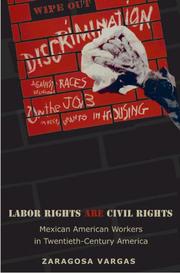
ISBN: 0691134022 1299988091 069111546X 1400849284 9781400849284 9780691134024 Year: 2005 Publisher: Princeton (N.J.) Princeton University Press
Abstract | Keywords | Export | Availability | Bookmark
 Loading...
Loading...Choose an application
- Reference Manager
- EndNote
- RefWorks (Direct export to RefWorks)
In 1937, Mexican workers were among the strikers and supporters beaten, arrested, and murdered by Chicago policemen in the now infamous Republic Steel Mill Strike. Using this event as a springboard, Zaragosa Vargas embarks on the first full-scale history of the Mexican-American labor movement in twentieth-century America. Absorbing and meticulously researched, Labor Rights Are Civil Rights paints a multifaceted portrait of the complexities and contours of the Mexican American struggle for equality from the 1930's to the postwar era. Drawing on extensive archival research, Vargas focuses on the large Mexican American communities in Texas, Colorado, and California. As he explains, the Great Depression heightened the struggles of Spanish speaking blue-collar workers, and employers began to define citizenship to exclude Mexicans from political rights and erect barriers to resistance. Mexican Americans faced hostility and repatriation. The mounting strife resulted in strikes by Mexican fruit and vegetable farmers. This collective action, combined with involvement in the Communist party, led Mexican workers to unionize. Vargas carefully illustrates how union mobilization in agriculture, tobacco, garment, and other industries became an important vehicle for achieving Mexican American labor and civil rights. He details how interracial unionism proved successful in cross-border alliances, in fighting discriminatory hiring practices, in building local unions, in mobilizing against fascism and in fighting brutal racism. No longer willing to accept their inferior status, a rising Mexican American grassroots movement would utilize direct action to achieve equality.
Américains d'origine mexicaine --- Américains d'origine mexicaine --- Chicanos --- Hispanos --- Mexican Americans --- Labor movement --- Ethnology --- Civil rights --- History --- Employment --- Mouvement ouvrier --- Travail --- Histoire --- Droits
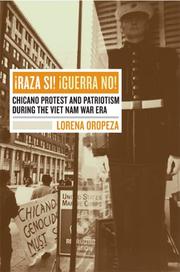
ISBN: 1597348503 0520937996 1417585129 9780520937994 0520225112 9780520225114 0520241959 9780520241954 9781597348508 9781417585120 Year: 2005 Publisher: Berkeley University of California Press
Abstract | Keywords | Export | Availability | Bookmark
 Loading...
Loading...Choose an application
- Reference Manager
- EndNote
- RefWorks (Direct export to RefWorks)
This incisive and elegantly written examination of Chicano antiwar mobilization demonstrates how the pivotal experience of activism during the Viet Nam War era played itself out among Mexican Americans. Raza Sil Guerra No! presents an engaging portrait of Chicano protest and patriotism. On a deeper level, the book considers larger themes of American nationalism and citizenship and the role of minorities in the military service, themes that remain pertinent today. Lorena Oropeza's exploration of the evolution, political trajectory, and eventual implosion of the Chicano campaign against the war
Mexican Americans --- Patriotism --- Vietnam War, 1961-1975 --- Civil rights movements --- Protest movements --- Social movements --- Loyalty --- Allegiance --- Chicanos --- Hispanos --- Ethnology --- Civil rights --- History --- Politics and government --- Protest movements.
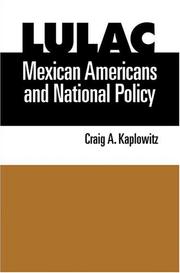
ISBN: 1299053173 1603445986 9781603445986 1585443883 9781585443888 Year: 2005 Publisher: College Station : Texas A&M University Press,
Abstract | Keywords | Export | Availability | Bookmark
 Loading...
Loading...Choose an application
- Reference Manager
- EndNote
- RefWorks (Direct export to RefWorks)
Mexican Americans --- Chicanos --- Hispanos --- Ethnology --- Government policy. --- Politics and government --- Civil rights --- History --- League of United Latin American Citizens --- Order of Sons of America --- L.U.L.A.C. --- LULAC --- History. --- United States --- Social policy. --- Ethnic relations.
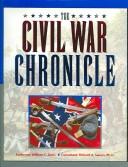
ISBN: 0203620348 1283886898 1136074821 9781136074820 9780203620342 0415946077 9780415946070 0415946085 9780415946087 9781283886895 9781136074905 9781136074981 1136074902 Year: 2005 Publisher: New York
Abstract | Keywords | Export | Availability | Bookmark
 Loading...
Loading...Choose an application
- Reference Manager
- EndNote
- RefWorks (Direct export to RefWorks)
Race, Gender, and the Politics of Skin Tone tackles the hidden yet painful issue of colorism in the African American and Mexican American communities. Beginning with a historical discussion of slavery and colonization in the Americas, the book quickly moves forward to a contemporary analysis of how skin tone continues to plague people of color today. This is the first book to explore this well-known, yet rarely discussed phenomenon.
African Americans --- Mexican Americans --- African American women --- Mexican American women --- Interviews --- Human skin color --- Racism --- Color of human beings --- Color of man --- Human beings --- Pigmentation of human skin --- Skin --- Skin color, Human --- Skin pigmentation, Human --- Color --- Chicanas --- Women, Mexican American --- Women --- Chicanos --- Hispanos --- Ethnology --- Negritude --- Race identity. --- Social conditions. --- Psychological aspects. --- Social aspects --- Ethnic identity --- United States --- Race relations. --- Race question
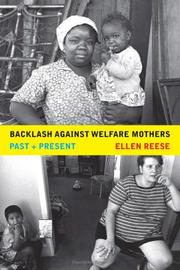
ISBN: 1282771841 9786612771842 0520938712 159875520X 9780520938717 9781598755206 9781282771840 6612771844 9780520244610 0520244613 9780520244627 0520244621 Year: 2005 Publisher: Berkeley University of California Press
Abstract | Keywords | Export | Availability | Bookmark
 Loading...
Loading...Choose an application
- Reference Manager
- EndNote
- RefWorks (Direct export to RefWorks)
Backlash against Welfare Mothers is a forceful examination of how and why a state-level revolt against welfare, begun in the late 1940's, was transformed into a national-level assault that destroyed a critical part of the nation's safety net, with tragic consequences for American society. With a wealth of original research, Ellen Reese puts recent debates about the contemporary welfare backlash into historical perspective. She provides a closer look at these early antiwelfare campaigns, showing why they were more successful in some states than others and how opponents of welfare sometimes targeted Puerto Ricans and Chicanos as well as blacks for cutbacks. Her research reveals both the continuities and changes in American welfare opposition from the late 1940's to the present. Reese brings new evidence to light that reveals how large farmers and racist politicians, concerned about the supply of cheap labor, appealed to white voters' racial resentments and stereotypes about unwed mothers, blacks, and immigrants in the 1950's. She then examines congressional failure to replace the current welfare system with a more popular alternative in the 1960's and 1970's, which paved the way for national assaults on welfare. Taking a fresh look at recent debates on welfare reform, she explores how and why politicians competing for the white vote and right-wing think tanks promoting business interests appeased the Christian right and manufactured consent for cutbacks through a powerful, racially coded discourse. Finally, through firsthand testimonies, Reese vividly portrays the tragic consequences of current welfare policies and calls for a bold new agenda for working families.
Single mothers --- Aid to families with dependent children programs. --- Welfare recipients --- Public welfare --- Mothers --- Single parents --- Single women --- ADC programs --- AFDC programs --- Aid to dependent children programs --- Government policy --- Employment --- History. --- United States --- Social policy. --- 1940s. --- 20th century. --- african americans. --- america. --- american society. --- american welfare. --- antiwelfare campaigns. --- black americans. --- chicanos. --- contemporary america. --- demographic studies. --- ethnographers. --- ethnography. --- historical perspective. --- low income families. --- motherhood. --- mothers. --- nonfiction. --- parenting. --- political history. --- politicians. --- puerto ricans. --- racism. --- safety net. --- welfare culture. --- welfare history. --- welfare opposition. --- welfare policies. --- welfare system. --- working class families.

ISBN: 9786612358050 1282358057 1597345695 0520938542 9780520938540 9781597345699 9780520231887 0520231880 9780520243927 0520243927 9781282358058 1417562676 9781417562671 661235805X Year: 2005 Publisher: Berkeley : University of California Press,
Abstract | Keywords | Export | Availability | Bookmark
 Loading...
Loading...Choose an application
- Reference Manager
- EndNote
- RefWorks (Direct export to RefWorks)
This first critical biography of Arturo Islas (19381991) brings to life the complex and overlapping worlds inhabited by the gay Chicano poet, novelist, scholar, and professor. Gracefully written and deeply researched, Dancing with Ghosts considers both the larger questions of Islas's life-his sexuality, racial identification, and political personality-and the events of his everyday existence, from his childhood in the borderlands of El Paso to his adulthood in San Francisco and at Stanford University. Frederick Aldama portrays the many facets of Islas's engaging and often contradictory personality. He also explores Islas's coming into the craft of poetry and fiction-his extraordinary struggle to publish his novels, The Rain God, La Mollie and the King of Tears, and Migrant Souls-as well as his pivotal role in paving the way for a new generation of Chicano/a scholars and writers. Through a skillful interweaving of life history, criticism, and literary theory, Aldama paints an unusually rich and wide-ranging portrait of both the man and the eventful times in which he lived. He describes Islas's struggle with polio as a child, his near-death experience and ileostomy as a thirty-year-old beginning to explore his queer sexuality in San Francisco in the 1970's, and his fatal struggle with AIDS in the late 1980's. Drawing from hundreds of unpublished letters, lecture notes, drafts of essays, novels, and poetry archived at Stanford University, Aldama also deals frankly with the controversies that swirled around Islas's impassioned love life, his drug addictions, and his scholarly and professional career as one of the first Chicano/a professors in the United States. He discusses the importance of Islas's pioneering role in bridging Anglo, Latin American, Chicano/a, and European storytelling styles and voices. Dancing with Ghosts succeeds brilliantly both as an account of a fascinating life that embraced many different worlds and as a chronicle of the grand historical shifts that transformed the late-twentieth-century American cultural landscape.
Mexican Americans in literature. --- Mexican American authors --- Mexican Americans --- English teachers --- Authors, American --- Intellectual life. --- Islas, Arturo, --- Stanford University --- Leland Stanford Junior University --- Leland Stanford Jr. University --- Universidad de Stanford --- Stėnfordskiĭ universitet --- Dānishgāh-i Istānfūrd-i Kālīfurniyā --- Faculty --- 1970s. --- 1980s. --- 20th century. --- aids. --- american borders. --- american figures. --- arturo islas. --- chicano scholars. --- chicanos. --- critical biography. --- cultural landscape. --- drug addiction. --- el paso. --- famous authors. --- fiction writers. --- gay figures. --- lgbtq. --- literary critics. --- literary figures. --- literary theory. --- nonfiction survey. --- nonfiction. --- poetry. --- polio. --- political figures. --- queer sexuality. --- racial identification. --- san francisco. --- sexuality. --- social history. --- stanford university. --- united states.

ISBN: 082233626X 0822336154 9780822336150 0822387093 1283022028 9786613022028 Year: 2005 Publisher: Durham, N.C. : Duke University Press,
Abstract | Keywords | Export | Availability | Bookmark
 Loading...
Loading...Choose an application
- Reference Manager
- EndNote
- RefWorks (Direct export to RefWorks)
Mexican Americans --- Mexicans --- Immigrants --- Illegal aliens --- Nationalism --- Américains d'origine mexicaine --- Mexicains --- Immigrants clandestins --- Nationalisme --- Social conditions --- Social conditions. --- Study and teaching. --- Conditions sociales --- Etude et enseignement --- Chicago (Ill.) --- Mexico --- United States --- Mexique --- Etats-Unis --- Race relations. --- Emigration and immigration. --- Relations raciales --- Emigration et immigration --- #SBIB:39A6 --- Mexican American studies --- Aliens --- Aliens, Illegal --- Illegal immigrants --- Illegal immigration --- Undocumented aliens --- Alien detention centers --- Human smuggling --- Emigrants --- Foreign-born population --- Foreign population --- Foreigners --- Migrants --- Persons --- Ethnology --- Chicanos --- Hispanos --- Etniciteit / Migratiebeleid en -problemen --- Legal status, laws, etc. --- Emigration and immigration --- Political aspects. --- Américains d'origine mexicaine --- Immigration --- International migration --- Migration, International --- Population geography --- Assimilation (Sociology) --- Colonization --- Political aspects --- Study and teaching --- Chikago (Ill.) --- Chikaho (Ill.) --- City of Chicago (Ill.) --- Shiḳago (Ill.) --- Čikago (Ill.) --- شيكاغو (Ill.) --- Shīkāghū (Ill.) --- Çikaqo (Ill.) --- Чыкага (Ill.) --- Chykaha (Ill.) --- Чикаго (Ill.) --- Shikááʼgóó (Ill.) --- Σικάγο (Ill.) --- Sikago (Ill.) --- Kikako (Ill.) --- שיקגו (Ill.) --- Sicagum (Ill.) --- Chicagia (Ill.) --- Chiagum (Ill.) --- Čikāga (Ill.) --- シカゴ (Ill.) --- شکاگو (Ill.) --- Shikāgū (Ill.) --- Kyekago (Ill.) --- Tchicago (Ill.) --- שיקאגא (Ill.) --- Čėkaga (Ill.) --- 芝加哥 (Ill.) --- Zhijiage (Ill.) --- Noncitizens

ISBN: 1282355120 9786612355127 0520936132 1598755285 9780520936133 0520230833 9780520230835 0520231392 9780520231399 9781598755282 9781282355125 6612355123 Year: 2005 Publisher: Berkeley University of California Press
Abstract | Keywords | Export | Availability | Bookmark
 Loading...
Loading...Choose an application
- Reference Manager
- EndNote
- RefWorks (Direct export to RefWorks)
Erotic Journeys is a fascinating, revealing, and respectful examination of the romantic relationships and sex lives of the fastest-growing minority group in the nation. In a series of in-depth interviews, Gloria González-López investigates the ways in which sixty heterosexual Mexican women and men living in Los Angeles reinvent their sex lives as part of their immigration and settlement experiences. Defying a broad spectrum of preconceived notions, these immigrants confirm in their vivid narratives that sexuality-far from being culturally determined-is fluid and complex. González-López explains that these Mexicans enter the United States with particular sexual ideologies and practices that, while diverse, are regulated by family ethics and regional patriarchies. After migration, a range of factors-including employment, the risks and dangers of resettlement, social networking with other immigrants, and the new demands of a fast-paced industrialized metropolis-begin to transform the immigrants' intimate lives in deep and unexpected ways. The remarkably candid interviews show that these men and women are skillful negotiating agents of their own sexuality. The author's incisive analysis of their narratives sets the stage for a nuanced and compelling understanding of this complex topic and its many social implications.
Sex --- Immigrants --- Mexican Americans --- Gender (Sex) --- Human beings --- Human sexuality --- Sex (Gender) --- Sexual behavior --- Sexual practices --- Sexuality --- Sexology --- Emigrants --- Foreign-born population --- Foreign population --- Foreigners --- Migrants --- Persons --- Aliens --- Chicanos --- Hispanos --- Ethnology --- Social aspects --- Social conditions. --- Los Angeles (Calif.) --- Los Anheles (Calif.) --- Pueblo de Nuestra Señora la Reina de los Angeles de Porciuncula (Calif.) --- Town of Our Lady the Queen of the Angels of Porciuncula (Calif.) --- Tʻien-shih-chih-chʻeng (Calif.) --- Tianshizhicheng (Calif.) --- Los Andzsheles (Calif.) --- Lo-shan-chi (Calif.) --- Loshanji (Calif.) --- Angeles (Calif.) --- Ciudad de Los Angeles (Calif.) --- Pueblo de Los Angeles (Calif.) --- Pueblo Los Angeles (Calif.) --- City of Los Angeles (Calif.) --- LA (Calif.) --- L.A. (Calif.) --- City of Angels (Calif.) --- لوس أنجلوس (Calif.) --- Lūs Anjilūs (Calif.) --- Los Anceles (Calif.) --- Горад Лос-Анджэлес (Calif.) --- Horad Los-Andz︠h︡ėles (Calif.) --- Лос-Анджэлес (Calif.) --- Los-Andz︠h︡ėles (Calif.) --- Лос Анджелис (Calif.) --- Los Andzhelis (Calif.) --- Λος Αντζελες (Calif.) --- Los Antzeles (Calif.) --- Los-Anĝeleso (Calif.) --- 로스앤젤레스 (Calif.) --- Losŭ Aenjellesŭ (Calif.) --- לוס אנג'לס (Calif.) --- Angelopolis (Calif.) --- Losandželosa (Calif.) --- Los Andželas (Calif.) --- Лос Анџелес (Calif.) --- Los Andželes (Calif.) --- ロサンゼルス (Calif.) --- Rosanzerusu (Calif.) --- ロサンゼルス市 (Calif.) --- Rosanzerusu-shi (Calif.) --- Los Anjeles (Calif.) --- Лос Андьелес (Calif.) --- Los Andʹeles (Calif.) --- Los Anxheles (Calif.) --- Лос Анђелес (Calif.) --- Our Lady Queen of the Angels (Calif.) --- Los Angeles City (Calif.) --- La La Land (Calif.) --- Ethnic relations. --- discussion books. --- erotic nonfiction. --- heterosexuality. --- immigration issues. --- immigration. --- intimate lives. --- latin american studies. --- los angeles. --- mexican immigrants. --- mexican men. --- mexican women. --- mexico. --- migrant experience. --- nonfiction. --- personal interviews. --- personal journeys. --- political issues. --- romantic relationships. --- settlement experiences. --- sex and romance. --- sex lives. --- sex. --- sexual ideologies. --- sexual practices. --- sexuality. --- sexy. --- social relationships. --- united states. --- us minorities.
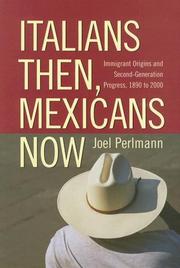
ISBN: 0871546620 Year: 2005 Publisher: New York Annandale-on-Hudson, NY Russell Sage Foundation Levy Economics Institute of Bard College
Abstract | Keywords | Export | Availability | Bookmark
 Loading...
Loading...Choose an application
- Reference Manager
- EndNote
- RefWorks (Direct export to RefWorks)
Mexican Americans --- Social conditions --- 20th century --- Immigrants --- United States --- Children of immigrants --- Economic conditions --- Assimilation (Sociology) --- History --- Race relations --- Ethnic relations --- #SBIB:314H252 --- #SBIB:316.334.2A342 --- #SBIB:316.8H16 --- Chicanos --- Hispanos --- Ethnology --- Emigrants --- Foreign-born population --- Foreign population --- Foreigners --- Migrants --- Persons --- Aliens --- First generation children --- Immigrants' children --- Second generation children --- Cultural assimilation --- Anthropology --- Socialization --- Acculturation --- Cultural fusion --- Emigration and immigration --- Minorities --- Internationale migratie --- Arbeidssociologie: ongelijkheden op de arbeidsmarkt: migranten op de arbeidsmarkt --- Welzijns- en sociale problemen: migranten, rassenrelaties --- ABŞ --- ABSh --- Ameerika Ühendriigid --- America (Republic) --- Amerika Birlăshmish Shtatlary --- Amerika Birlăşmi Ştatları --- Amerika Birlăşmiş Ştatları --- Amerika ka Kelenyalen Jamanaw --- Amerika Qūrama Shtattary --- Amerika Qŭshma Shtatlari --- Amerika Qushma Shtattary --- Amerika (Republic) --- Amerikai Egyesült Államok --- Amerikanʹ Veĭtʹsėndi︠a︡vks Shtattnė --- Amerikări Pĕrleshu̇llĕ Shtatsem --- Amerikas Forenede Stater --- Amerikayi Miatsʻyal Nahangner --- Ameriketako Estatu Batuak --- Amirika Carékat --- AQSh --- Ar. ha-B. --- Arhab --- Artsot ha-Berit --- Artzois Ha'bris --- Bí-kok --- Ē.P.A. --- EE.UU. --- Egyesült Államok --- ĒPA --- Estados Unidos --- Estados Unidos da América do Norte --- Estados Unidos de América --- Estaos Xuníos --- Estaos Xuníos d'América --- Estatos Unitos --- Estatos Unitos d'America --- Estats Units d'Amèrica --- Ètats-Unis d'Amèrica --- États-Unis d'Amérique --- Fareyniḳṭe Shṭaṭn --- Feriene Steaten --- Feriene Steaten fan Amearika --- Forente stater --- FS --- Hēnomenai Politeiai Amerikēs --- Hēnōmenes Politeies tēs Amerikēs --- Hiwsisayin Amerikayi Miatsʻeal Tērutʻiwnkʻ --- Istadus Unidus --- Jungtinės Amerikos valstybės --- Mei guo --- Mei-kuo --- Meiguo --- Mî-koet --- Miatsʻyal Nahangner --- Miguk --- Na Stàitean Aonaichte --- NSA --- S.U.A. --- SAD --- Saharat ʻAmērikā --- SASht --- Severo-Amerikanskie Shtaty --- Severo-Amerikanskie Soedinennye Shtaty --- Si︠e︡vero-Amerikanskīe Soedinennye Shtaty --- Sjedinjene Američke Države --- Soedinennye Shtaty Ameriki --- Soedinennye Shtaty Severnoĭ Ameriki --- Soedinennye Shtaty Si︠e︡vernoĭ Ameriki --- Spojené obce severoamerické --- Spojené staty americké --- SShA --- Stadoù-Unanet Amerika --- Stáit Aontaithe Mheiriceá --- Stany Zjednoczone --- Stati Uniti --- Stati Uniti d'America --- Stâts Unîts --- Stâts Unîts di Americhe --- Steatyn Unnaneysit --- Steatyn Unnaneysit America --- SUA (Stati Uniti d'America) --- Sŭedineni amerikanski shtati --- Sŭedinenite shtati --- Tetã peteĩ reko Amérikagua --- U.S. --- U.S.A. --- United States of America --- Unol Daleithiau --- Unol Daleithiau America --- Unuiĝintaj Ŝtatoj de Ameriko --- US --- USA --- Usono --- Vaeinigte Staatn --- Vaeinigte Staatn vo Amerika --- Vereinigte Staaten --- Vereinigte Staaten von Amerika --- Verenigde State van Amerika --- Verenigde Staten --- VS --- VSA --- Wááshindoon Bikéyah Ałhidadiidzooígíí --- Wilāyāt al-Muttaḥidah --- Wilāyāt al-Muttaḥidah al-Amirīkīyah --- Wilāyāt al-Muttaḥidah al-Amrīkīyah --- Yhdysvallat --- Yunaeted Stet --- Yunaeted Stet blong Amerika --- ZDA --- Združene države Amerike --- Zʹi︠e︡dnani Derz︠h︡avy Ameryky --- Zjadnośone staty Ameriki --- Zluchanyi︠a︡ Shtaty Ameryki --- Zlucheni Derz︠h︡avy --- ZSA --- Η.Π.Α. --- Ηνωμένες Πολιτείες της Αμερικής --- Америка (Republic) --- Американь Вейтьсэндявкс Штаттнэ --- Америкӑри Пӗрлешӳллӗ Штатсем --- САЩ --- Съединените щати --- Злучаныя Штаты Амерыкі --- ولايات المتحدة --- ولايات المتّحدة الأمريكيّة --- ولايات المتحدة الامريكية --- 미국 --- États-Unis --- É.-U. --- ÉU
| Listing 1 - 9 of 9 |
Sort by
|

 Search
Search Feedback
Feedback About UniCat
About UniCat  Help
Help News
News